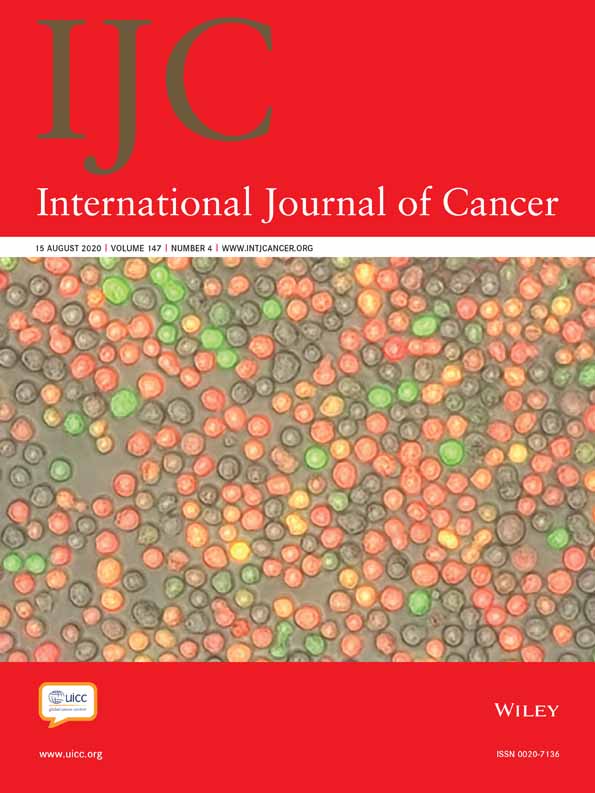Metronomic cyclophosphamide induces regulatory T cells depletion and PSA-specific T cells reactivation in patients with biochemical recurrent prostate cancer
Abstract
Biochemical recurrence (BCR) occurs in up to 40% of prostate cancer patients after prostatectomy. In our study, we performed an immune monitoring study in 20 prostate cancer patients with BCR previously treated with metronomic cyclophosphamide (mCTX). We observed a decrease of regulatory T cells (Tregs) from 2 months and this was more pronounced after 6 months of mCTX treatment. This drop of Tregs was associated with increased level of activated HLADR+ CD45R0+ T cells in peripheral blood. Furthermore, a reactivation of Th1 polarized anti-PSA T-cell response was detected in BCR patients treated with mCTX. However, dendritic cell subsets counts and activation were not influenced by the treatment. In the clinical setting, we found that PSA level control was observed in 82% (9/11) of patients with a significant diminution of Tregs after mCTX compared to 33% (3/9) in patients without Tregs decrease. In addition, 30% (6/20) of patients previously treated with mCTX remained free for androgen deprivation therapy. In conclusion, Tregs diminution and immune activation associated with PSA level control occurred after mCTX in prostate cancer patients with BCR.
Abstract
What's new?
Prostate cancer patients with biochemical relapse show an increase in the circulating level of prostate specific antigen (PSA) post-treatment. Metronomic chemotherapy consisting of frequent low-dose anticancer drug administration may be particularly beneficial in this context. Here, the authors evaluated the immunomodulatory effect of metronomic cyclophosphamide (mCTX) and its association with PSA control in prostate cancer patients with biochemical recurrence. mCTX mediated regulatory T-cell depletion, resulting in reversal of immunosuppression and the concurrent reactivation and resurgence of PSA-specific T cells. This specific T-cell activation led to lowering of PSA levels and control of disease progression, supporting the use of mCTX therapy.
Open Research
Data availability
The data that support the findings of our study are available from the corresponding author upon reasonable request.




